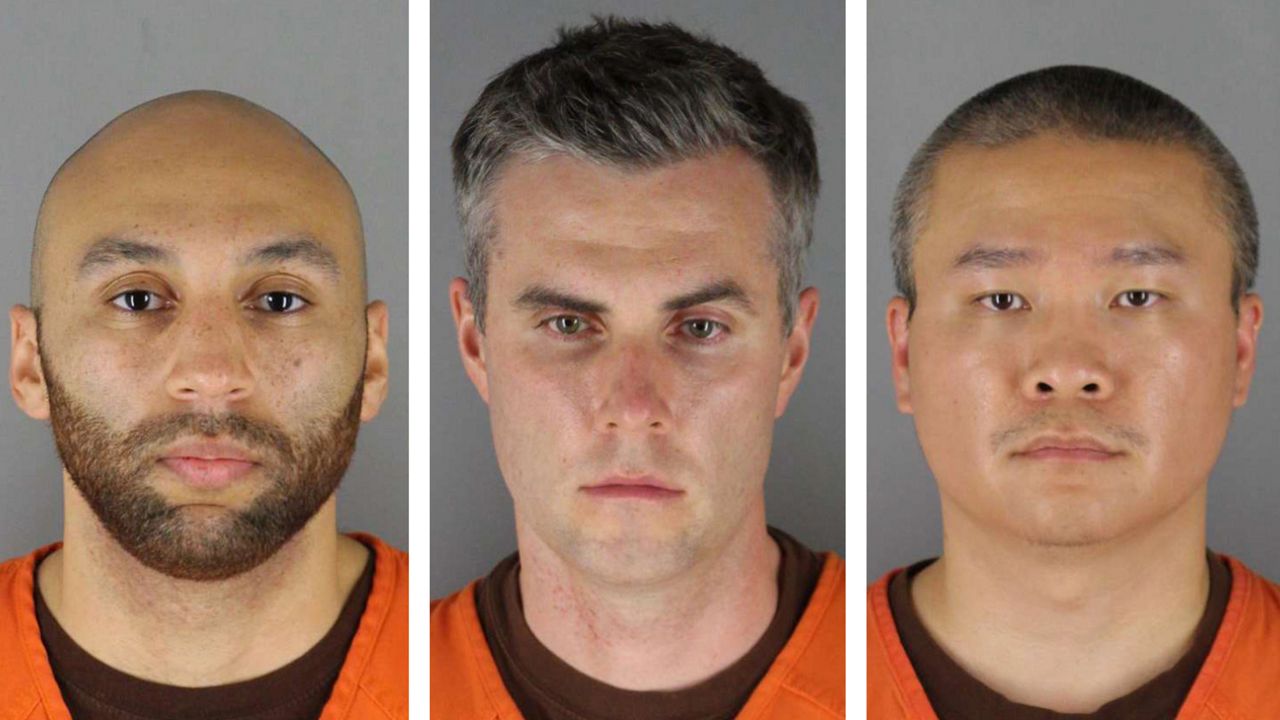A federal jury on Thursday found three former Minneapolis police officers guilty of violating George Floyd’s civil rights when he was pinned to the ground for 9 1/2 minutes as fellow Officer Derek Chauvin pressed his knee into his neck.
J. Alexander Kueng, Thomas Lane and Tou Thao were charged with depriving Floyd of his right to medical care. Kueng and Thao were also charged with failing to intervene to stop Chauvin during the May 25, 2020 killing.
The jury found both Kueng and Thao guilty on the second count Thursday as well.
Jurors met for about seven hours Wednesday, the first day of deliberations, and for another six hours Thursday before coming to their decisions.
Conviction of a federal civil rights violation that results in death is punishable by life in prison or even death, but such sentences are extremely rare. The former officers will remain free on bond pending sentencing.
During the monthlong trial, prosecutors sought to show that the officers violated their training, including when they failed to move Floyd or give him CPR. Prosecutors argued that Floyd’s condition was so serious that even bystanders without basic medical training could see he needed help.
The defense said their training was inadequate and that the officers deferred to Chauvin as the senior officer at the scene.
Prosecutors told jurors during closing arguments that the three officers “chose to do nothing” as Chauvin squeezed the life out of Floyd. Defense attorneys countered that the officers were too inexperienced, weren’t trained properly and did not willfully violate Floyd’s rights.
All 12 members of the jury — eight women and four men — appeared to be white, although the court has not released demographics such as race or age. A woman who appeared to be of Asian descent was excused Tuesday from the panel without explanation; a man who appeared to be of Asian descent remains as an alternate if one of the current 12 cannot continue.
Lane is white, Kueng is Black and Thao is Hmong American.
That was a sharp contrast to the jury that deliberated the state murder case against Chauvin. That jury was half white and half nonwhite.
Prosecutors sought to show during the monthlong trial that the officers violated their training, including when they failed to roll Floyd onto his side or give him CPR. They argued that Floyd’s condition was so serious that even bystanders without basic medical training could see he needed help.
But the defense said the Minneapolis Police Department’s training was inadequate and that the officers deferred to Chauvin as the senior officer at the scene.
Chauvin and Thao went to the scene to help rookies Kueng and Lane after they responded to a call that Floyd used a counterfeit $20 bill at a corner store. Floyd struggled with officers as they tried to put him in a police SUV.
Thao watched bystanders and traffic as Kueng knelt on Floyd’s back and Lane held his legs.
The jurors were not sequestered — isolated from outside influences that could sway their opinion — which is sometimes done by having them stay in hotels during deliberations. They were allowed to watch videos from the scene and view other evidence as much as they wanted during deliberations.
Lane, Kueng and Thao also face a separate trial in June on state charges alleging that they aided and abetted murder and manslaughter.
This is a developing story. Please check back for updates.



